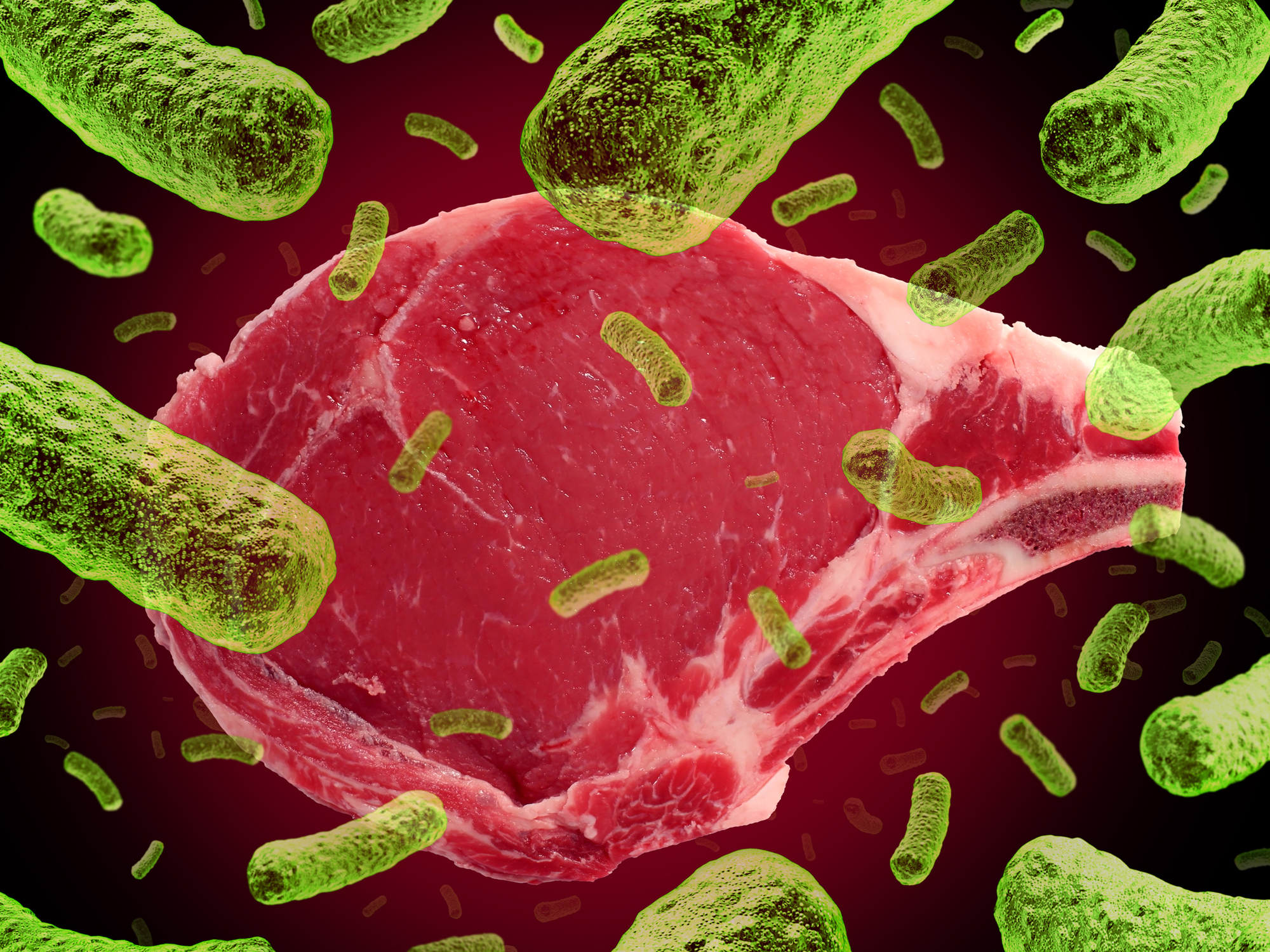Get Easy Health Digest™ in your inbox and don’t miss a thing when you subscribe today. Plus, get the free bonus report, Mother Nature’s Tips, Tricks and Remedies for Cholesterol, Blood Pressure & Blood Sugar as my way of saying welcome to the community!
Not for the squeamish: Superbugs found in 80% of supermarket meat

Should you eat meat? Or not?
It’s a divisive question among health nuts. After all, we range on the dietary spectrum from strict vegans to diehard paleo dieters.
But if you fall more on the meat-eating end of that spectrum, one thing is for certain…
You need to be super picky about what kind of meat you eat if you want to stay healthy.
And I don’t just mean that you need to choose lean meats like chicken breast over processed meats like hot dogs (although, that’s not a bad idea, since processed meats are tied to a higher risk of cancer).
I mean that you need to get your meat from companies that aren’t doing a bunch of unnatural and unhealthy things to it.
Unfortunately, healthy meat is hard to find in your run-of-the-mill grocery store. Case in point?
The Environmental Working Group, a nonprofit dedicated to protecting human and environmental health, revealed that most meat on supermarket shelves has a hidden ingredient that can seriously harm your health — antibiotic-resistant superbugs.
Most supermarket meat contains superbugs
The Environmental Working Group analyzed 47,000 federal government lab tests on bacteria in supermarket meat, and guess what?
Nearly 80 percent of the meat you pick up at the supermarket contains antibiotic-resistant superbugs — you know, the kind that can not only kill you but are expected to start a global health crisis in the years to come.
More specifically, they found that 79 percent of ground turkey, 71 percent of pork chops, 62 percent of ground beef, and 36 percent of chicken breasts, wings and thighs contained superbugs that can cause serious untreatable infections.
Why are there so many dangerous superbugs on our supermarket meat?
Because the industrial farms that produce most meat raise animals in crowded, unsanitary conditions and are forced to give these animals loads of antibiotics to keep them alive. But the overuse of antibiotics in industrial farms has an unfortunate consequence. It kills off weak bacteria and leaves the strong bacteria to thrive and reproduce, creating antibiotic-resistant superbugs.
What happens when you’re exposed to these superbugs in your meat?
People with weak immune systems could become seriously ill from them. But for most of us, it just creates an issue that will bite us in the butt in the future. Because when these antibiotic-resistant bacteria come in contact with other bacteria, like the bacteria in our gastrointestinal tract for example, they transfer their antibiotic-resistant genes to these bacteria.
So, the more antibiotic-resistant we’re exposed to, the more likely the bacteria inside of us will become antibiotic-resistant. Basically, the industrial food system is setting us up for a scary future.
Be a smarter meat shopper
So, how do you avoid eating antibiotic-resistant bacteria in your meat? Especially, when it’s in so much of the meat at your local supermarket?
Well, fortunately for us, the EWG assembled a list of helpful tips for avoiding superbugs in meat, like:
- Buying organic, antibiotic-free meat
- Getting your meat from local farmers
- Cooking meat thoroughly
- Storing meat away from produce
- Using a separate cutting board for meat
- Not washing meat (the water can splash on other areas of your kitchen, causing superbugs to spread)
It’s also important to know what to look for on labels at the supermarket to ensure you’re getting high-quality meat that’s less likely to contain superbugs. According to the EWG, these are the labels you’ll find on the highest-quality supermarket meat products with the strictest standards:
- American Grassfed
- USDA Organic
- Animal Welfare Approved
- Certified Humane
- Food Alliance Certified Grassfed
- Global Animal Partnership
- Marine Stewardship Council
These labels are a little less reliable, but still better than many supermarket meat options out there when it comes to superbugs:
- American Humane Certified
- Raised Without Antibiotics
- No Antibiotics
- No Antibiotics Ever
- No Antibiotics Added
- No Antibiotics Administered
Finally, these labels are unreliable. They’re vague and in some cases, don’t refer to antibiotic use at all:
- No Antibiotic Residues
- Antibiotic Free
- No Antibiotic Growth Promotants
- No Hormones or Steroids Added
- Natural
- Kosher
Hopefully, these guidelines will help you avoid superbugs in your supermarket meat… especially if you enjoy a good burger. But if burgers aren’t your thing and you prefer to play it safe, you can always join your fellow plant-based health nuts and go vegetarian.
Editor’s note: Did you know that when you take your body from acid to alkaline you can boost your energy, lose weight, soothe digestion, avoid illness and achieve wellness? Click here to discover The Alkaline Secret to Ultimate Vitality and revive your life today!
Sources:
- Supermarket Meat Still Superbugged, Federal Data Show — The Environmental Working Group.
- Tips to Help You Avoid Superbugs in Meat — The Environmental Working Group.
- Report: Superbugs Found in More Than Three-Fourths of U.S. Supermarket Meat — The Environmental Working Group.
- Decoding Meat and Dairy Product Labels — The Environmental Working Group.
- ‘Superbugs’ found in vast majority of U.S. supermarket meat — MedicalXpress.













